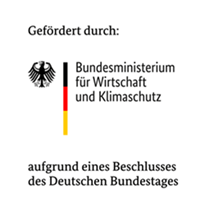
News
Project ModuLA: Information from planning to operation | 06.02.2019
Linking all the Information from the planning and operation phases requires a continous and consistent information model for the entire life cycle. Project ModuLA started end of 2018 to work out the specifications for this integrated approach.
weiterlesen
ENPRO once more at the PAAT meeting | 10.11.2015
This year presented the initiative ENPRO a large proportion of the scientific program of the Annual Meeting of ProcessNet Section "Process, Apartus- and Plant Engineering (PAAT)" on 16 and 17 November 2015 Bruchsal. Prof. Kockmann gave on Tuesday, 11/17/2015, an overview of the ENPRO idea and subsequently showed the individual projects their current results.
weiterlesen
1st ENPRO day was a great success | 29.06.2015
On the 24.06.2015, over 50 experts from the ENPRO initiative met at DECHEMA in Frankfurt am Main, Germany, to discuss the latest results. A World Café was held during this meeting, debating the current developments and developing ideas for the further progress.
weiterlesen
Cross-scale methodology for planning and development of resource-efficient processes-SkaMPi
The chemical industry is one of the economic sectors in Germany whose production is the most energy-intensive. These processes still have significant energy-saving potential. The energy efficiency of basic chemicals could already be increased by switching to a continuous and modular production. In contrast, the production of pharmaceutical, fine- and specialty chemicals has a significant energy saving potential, as this is still mainly done in batch mode.
Conventional process development often relies on already existing experimental data. These were usually obtained in discontinuous laboratory equipment. In contrast, the production processes are carried out in technically different types of apparatus. In particular, there is little information available on novel apparatus technologies, which often work continuously. In this way, the conventional approach creates significant barriers to the use of innovative technologies, already in the early phase of process development.
The aim of the project SkaMPi (cross-scale methodology for planning and development of resource-efficient processes) is therefore to break through these barriers and to complement the existing methodology so that the selection of the optimal apparatus technologies at an early stage for a new product or intended product portfolio can be carried out. An optimal resource-efficient process interconnection has to be considered.
